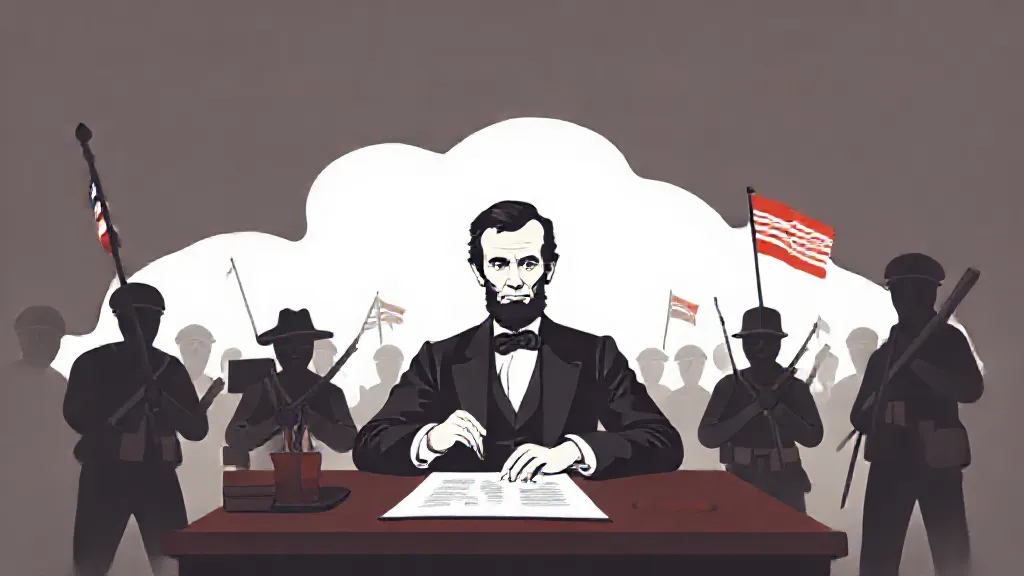The Emancipation Proclamation, issued by President Abraham Lincoln on January 1, 1863, was a pivotal moment in American history that not only transformed the Civil War but also reshaped the moral landscape of the nation. This executive order declared the freedom of all enslaved people in the Confederate states, fundamentally altering the nature of the war from a battle for the Union to a fight for freedom. Understanding the context and implications of this proclamation is essential for grasping its significance in American history.
Historical Context of the Proclamation
The roots of the Emancipation Proclamation can be traced back to the deeply entrenched institution of slavery in the United States. By the early 1860s, tensions between the North and South had escalated, leading to the outbreak of the Civil War in 1861. As the conflict progressed, it became increasingly clear that slavery was not only a moral issue but also a central factor in the Southern economy and society.
Lincoln, who initially sought to preserve the Union, recognized that addressing the issue of slavery was crucial for achieving a lasting peace and victory.
Military Strategy Behind the Proclamation
Lincoln's decision to issue the Emancipation Proclamation was also influenced by military strategy. The Union Army faced significant challenges in its fight against the Confederacy, and Lincoln believed that freeing enslaved individuals would undermine the Southern war effort.
By declaring the freedom of enslaved people in rebellious states, Lincoln aimed to weaken the Confederate economy, which relied heavily on slave labor. This strategic move also allowed for the recruitment of African American soldiers into the Union Army, bolstering its ranks and contributing to the eventual Union victory.
Shifting the War's Moral Compass
The Emancipation Proclamation marked a significant shift in the moral compass of the Civil War.
While the war initially focused on the preservation of the Union, the proclamation reframed the conflict as a struggle for human rights and freedom. This shift resonated with abolitionists and anti-slavery advocates in the North, who saw the proclamation as a long-awaited step towards justice. It also garnered international support for the Union cause, particularly from countries like Britain and France, which had abolished slavery and were hesitant to support a nation fighting to maintain it.
Reactions from the Confederacy and the Border States
The reaction to the Emancipation Proclamation varied widely. Confederate leaders denounced it as an act of war and a violation of their rights. They viewed it as a desperate measure by Lincoln to incite rebellion among enslaved people and destabilize their society.
In contrast, the border states—slaveholding states that remained loyal to the Union—were deeply divided. Some leaders in these states were angered by the proclamation, fearing it would lead to unrest and undermine their social order. Lincoln, understanding these sensitivities, refrained from emancipating enslaved individuals in these border states, hoping to maintain their loyalty.
The Role of African Americans in the War
The proclamation had a profound impact on African Americans, who seized the opportunity to fight for their freedom. After the issuance of the proclamation, thousands of formerly enslaved individuals enlisted in the Union Army, contributing significantly to the war effort. By the end of the war, nearly 200,000 African American soldiers had served in the Union forces, playing a crucial role in battles and helping to turn the tide of the war.
Their participation not only helped secure victory but also laid the groundwork for future civil rights advancements.
Consequences of the Proclamation
The Emancipation Proclamation had far-reaching consequences that extended beyond the battlefield. It set the stage for the eventual passage of the Thirteenth Amendment in 1865, which abolished slavery throughout the United States.
The proclamation also had a lasting impact on American society, as it challenged the deeply rooted racial hierarchies and initiated a long struggle for civil rights. The ideals of freedom and equality espoused in the proclamation would resonate through subsequent generations, influencing movements for justice and equality.
Legacy of the Emancipation Proclamation
Today, the Emancipation Proclamation is celebrated as a monumental achievement in the fight for human rights.
It symbolizes the struggle for freedom and equality in the United States and serves as a reminder of the ongoing fight against injustice. The proclamation is not only a historical document but also a powerful testament to the resilience of those who fought for their freedom. It continues to inspire contemporary movements advocating for social justice and equality, underscoring its enduring relevance in American society.
In conclusion, the Emancipation Proclamation was a transformative decree that reshaped the Civil War and the nation. It redefined the purpose of the conflict, empowered African Americans, and set the stage for the abolition of slavery. Understanding its implications provides valuable insights into the complexities of American history and the ongoing struggle for equality.
